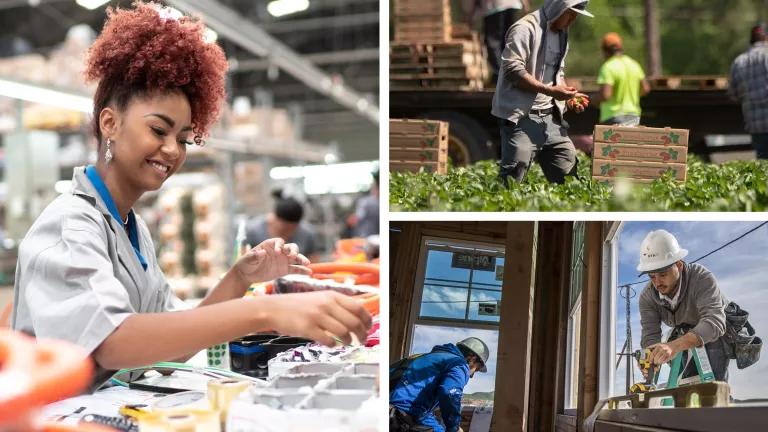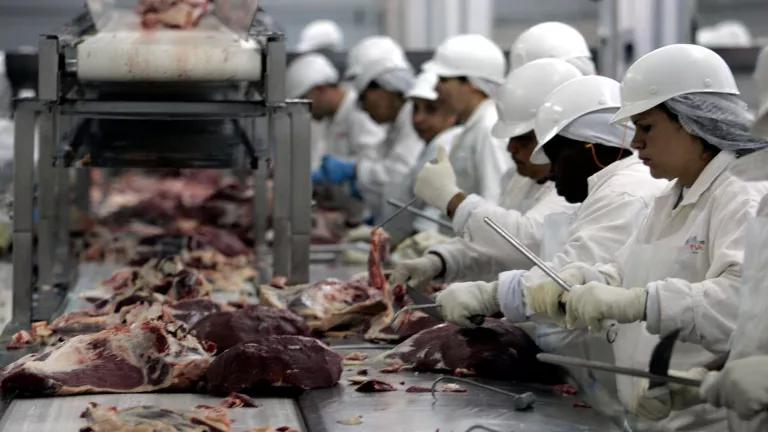Economic Inclusion and Justice: High-Quality Careers for All
Racial justice, economic equity, public health, and climate action are inextricably linked. To create healthier working conditions and communities for all, NRDC advocates for policies that support high-quality, family-sustaining careers.

A strong workforce is foundational to a healthy, sustainable, and just world—and vice versa. NRDC is committed to ensuring that our environmental policies protect communities and their quality of life. That includes prioritizing family-sustaining jobs, like those unions provide, and other economic opportunities that are accessible to all, especially to Black people, Indigenous People, and people of color.
By pursuing economically inclusive and just policies as we combat the climate crisis, our work helps support a more sustainable world in which all people can thrive. This includes, for example, workers who are transitioning out of an environmentally harmful industry, the surrounding communities that for decades bore the brunt of the pollution from such industries, those living in underserved rural communities, and people who have dealt with systemic barriers to pursuing high-quality careers.
Effectively advancing economic inclusion, justice, and transition policies means partnering with affected workers and communities who are on the frontlines of these overlapping issues. For example, NRDC has been a member of the BlueGreen Alliance, an organization that fosters cooperation between the nation’s largest environmental groups and labor unions to solve our shared challenges. NRDC is also a signatory of the Equitable & Just National Climate Platform, a coalition of environmental justice and national environmental organizations that works to advance an inclusive, just, and pollution-free energy economy with high-quality jobs.
Building a strong, sustainable workforce also entails investing in environmental policies that promote high-quality jobs, such as those with health benefits, paid time off, career paths, as well as safe and healthy workplaces that protect against hazards such as COVID-19, heat illnesses, and chemical and toxic exposure. This would support livelihoods while simultaneously staving off the climate crisis.
Confronting our environmental problems—such as upgrading our building stock, improving our water and transportation infrastructure, reclaiming and remediating toxic sites—must also go hand in hand with policies that combat racial injustice. Holding our work to these standards will help protect communities from further displacement and direct investments to communities that have been left behind. Designing policies that actively combat systemic injustices is one step toward building a more just, inclusive, and sustainable world.
Downloads
Related Resources
High-Quality Jobs Help Protect the Planet

Treat Farmworkers as Essential, not Sacrificial

On the Frontlines: Climate Change Threatens the Health of America’s Workers
Standing with Workers During the COVID-19 Crisis

Corporate Irresponsibility: JBS’s Inaction and Disregard for Worker Safety have Increased the Spread of COVID-19 in the United States and Brazil

When the World Stopped, These Essential Workers Started Their Engines

After the Local Coal Mine Shuts Down, These Navajo and Hopi Communities Seek a Just Transition

